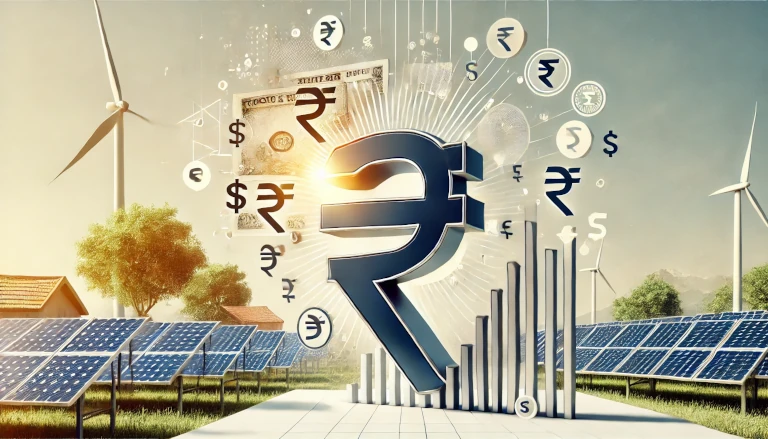As solar energy gains popularity in India, many homeowners are considering solar panel installations. But what is the cost of solar panels, especially for systems up to 5kW? This guide will cover everything you need to know about solar panel prices in India, why they vary, the advantages of going solar, and how to calculate potential savings.
What is the Price of Solar Panels in India? 💰
The price of solar panels in India varies depending on factors such as capacity, brand, quality, and installation costs. Typically, prices for solar panels in India range from ₹40,000 per kW to ₹70,000 per kW. Here’s a quick breakdown of the costs based on different system sizes:
- 1kW System: ₹40,000 – ₹70,000
- 2kW System: ₹80,000 – ₹1,40,000
- 3kW System: ₹1,20,000 – ₹2,10,000
- 4kW System: ₹1,60,000 – ₹2,80,000
- 5kW System: ₹2,00,000 – ₹3,50,000
These estimates can vary based on the type of solar panels (monocrystalline or polycrystalline), installation location, and specific requirements.
Why Choose Solar Panels in India? 🌞
Solar panels offer numerous benefits, making them an attractive choice for Indian homeowners and businesses:
- Reduced Electricity Bills: Solar panels allow you to produce your own electricity, which can significantly reduce or even eliminate your electricity costs.
- Environmental Impact: Solar energy is clean and renewable, helping to reduce pollution and combat climate change.
- Government Incentives: The Indian government offers various incentives and subsidies that can help lower the overall cost of solar installations.
How Do Solar Panel Costs Vary? 📊
Several factors affect the price of solar panels in India:
- Panel Type: Monocrystalline panels are more efficient but costlier than polycrystalline panels, which are cheaper but less efficient.
- System Size: Larger systems (like 5kW) cost more upfront but can provide higher savings on electricity bills over time.
- Installation Costs: Location and specific installation requirements, such as mounting type and labor, can influence costs.
- Government Subsidies: Subsidies can reduce costs by up to 30% for residential systems, making solar more affordable.
For example, a homeowner choosing a 3kW system with high-efficiency monocrystalline panels might pay more initially but benefit from higher energy savings, while another opting for a polycrystalline system may spend less upfront but experience slightly lower efficiency.
What Are the Advantages and Disadvantages of Solar Panels? 📈📉
Advantages:
- Long-Term Savings: Solar panels provide free electricity after installation, offering significant long-term savings.
- Energy Independence: Generating your own electricity reduces dependence on the grid, providing energy security during outages.
- Low Maintenance: Once installed, solar panels require minimal maintenance, with occasional cleaning being the primary upkeep.
Disadvantages:
- Initial Cost: Solar panel installations can be expensive, although costs have decreased significantly in recent years.
- Weather Dependent: Solar panels produce less energy on cloudy days and none at night, which might require a backup system for continuous power.
- Space Requirements: Larger systems like 5kW require more roof space, which may not be available in all homes.
How Much Can You Save with Solar Panels in India? 🏷️
The savings from solar panels depend on the size of the system, location, and energy usage. On average, a 5kW system can save you approximately ₹6,000 to ₹8,000 per month on electricity bills. Over a 25-year lifespan, this amounts to ₹18,00,000 – ₹24,00,000 in savings, far outweighing the initial investment.
When is the Best Time to Install Solar Panels? 🕒
The best time to install solar panels in India is during the dry season, as installations are more efficient without the risk of rain. Additionally, if your state offers solar incentives or subsidies, installing sooner rather than later can help you take advantage of these benefits.
What Are the Cost Benefits of Different Solar System Sizes? 📐
To understand cost benefits, it’s essential to consider both upfront costs and long-term savings:
- 1kW System: Ideal for small homes, it can power basic appliances, reducing electricity bills by around ₹1,500 to ₹2,000 monthly.
- 2-3kW Systems: Suitable for medium-sized homes, these systems offer balanced costs and savings, reducing monthly bills by ₹3,000 to ₹5,000.
- 4-5kW Systems: Great for larger homes with higher energy needs, potentially reducing monthly bills by ₹6,000 to ₹8,000 or more.
For instance, while a 5kW system requires a higher upfront investment, it pays off with greater savings, making it a better long-term choice for larger households.
How to Choose the Best Solar Panel System Size? 📋
When deciding on a solar panel system size, consider:
- Electricity Consumption: Calculate your monthly energy usage. A higher usage justifies a larger system like 5kW.
- Available Roof Space: Ensure you have enough roof space to accommodate the panel size.
- Budget and Incentives: Research subsidies and financing options that can help offset costs and determine what you can afford.
- Long-Term Goals: If you plan to expand your home or add appliances, choose a larger system to cover future needs.
Investing in solar panels is a practical and sustainable way to reduce electricity costs and environmental impact. By understanding the price range, potential savings, and factors that influence costs, you can make an informed decision on the best system size for your home. With various government incentives available, solar panels are more affordable than ever, offering long-term financial and environmental benefits.
Discover more from Green Ecosystem - Renewable Energy, Agriculture, and Environmental Sustainability
Subscribe to get the latest posts sent to your email.


